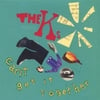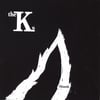The first wound was an insignificant nick to my left elbow, nowhere near the tendon, and an unplanned strike at that. Still it was scored, and a good call by the footline judge. I nodded to him out of respect and must have slipped into a reflective state, not in the moment. No doubt my reactions had gone sluggish, and earned me the cut to the leg. Worse than any physical pain was the sting of knowing that my opponent was not truly worthy of landing the blow. This then must be the meaning of the saying that the master can only be bested by a novice. It isn't the skilled enemy one must fear, but rather complacency and failure to apply one's training.
The Tournament had started with the usual fanfare, dazzling pyrotechnics reflecting off the windows of the ducal palace and feasting in the streets. Small whitecaps played over the surface of the Kingal River, raised by a late-season steppe wind. This close to the ocean the Kingal was more of an inland sea than a river, shallow and brackish and extending to the horizon. The docks were full of cargo ships and the yachts of foreign dignitaries coming in for the games. It was testament to the size and opulence of the city that it could absorb so many visitors and not be reduced to a mudfield. Even the alleys were paved with cut stone.
I had worked through the first two matches on day one, both ending with respectable forfeiture by my challengers. I would likely take them on as clients at the training house later in the season. My third challenger was a braggart and a simpleton. He repeatedly made angry slashes that -- if they'd had any hope of connecting -- would have either inflicted career-ending injuries or been killing blows. It wasn't the sort of thing one did at this stage of the Tournament. After a minute or two of this and a few discreet nods from the circle judge I parried high, punched the fool in the mouth, and then laid his cheek open to the bone. He lost the match and an ear, blubbering about a foul even as the guards hauled him off. It was a bad end to an otherwise good day, and I slogged through bouts four and five on the next two days. They were workmanlike matches, both won on points.
At least the sixth match allowed me to inject some technique back into my work.
The sixth day of the Tournament was a rest-day, and all the remaining competitors slept in and took massages. After checking my leg and dabbing on some ointment the tournament physician released me for the day. I walked to the Southlander neighborhood and had greenfish baked in clay with hot peppers. The Southland crowd was all abuzz about the Tournament, some talking about how artless the current favorite was, others saying that finally there was some blood on the sand, and that these were the first fights they'd cared about in decades. I kept my mouth shut and sopped up sauce with flatbread. "Fights," indeed. They may as well have been talking about dogs, not swordsmen.
I woke the next morning refreshed and relaxed. The Kingal smelled of salt. This was the start of the Killing Days -- the combatants were now of sufficient skill that matches were rarely called on points -- injury or death was the typical outcome for one if not both of the men in the circle. The crowds would be bigger, and even the losers (if they survived) could expect some fame and recognition. More than ever skill and command of the craft were appreciated, particularly among the elite spectators in the ringside seats.
I wound my battle turban and went through a series of stretches. My leg was as limber as ever – I had sparred with much worse. I rolled my blades in a reed mat, slung them over my shoulder, and made my way to the arena. Already the crowd was drumming on their benches, chanting the names of favorites. As I moved to the circle where I would face the seventh match the noise grew even louder. Evidently I would be defeating a local hero.
He appeared anything but that. Huge, coarsely muscled, and covered in scars, he looked like more of a northland street brawler than a Kingalese weaponmaster. His black hair was tied back with a gut chord but still shaggy for all that -- plenty of opportunity for it to fall into his eyes. He wore dull copper bracers on his wrists and a filthy loincloth. In mockery of a House pennant he had tied six heads to a stick, giving those gruesome ornaments no more dignity than a brace of quail.
This then was the reason for the cheering -- he was the sort of murderer who would decapitate a lesser-skilled foe for nothing more than the roar of the crowd. Such savagery in the early rounds was contemptible. It was dirty work. Indeed his weapon -- a ridiculous hatchet of a broadsword, a foot too long and twelve pounds too heavy for artful combat -- was still clotted with blood and what looked to be a bit of scalp. I considered selecting a Hunterwyck dueling epee out of sheer disdain. That would give the crowd a spectacle -- the death of a twenty-stone bruiser from a hundred pin-pricks.
Then I recognized one of the heads. Fiorulci d'Masterpolo had been a savant with a rapier. That this beast had slain him gave me pause. I selected a stout longblade, double-edged, with knurled ricasso and cured leather basket. It would do the job of educating the audience and then serve well in breaking this bastard down like a steer at the market.
He had the gracelessness to laugh as I entered the circle. I nodded to the line and circle judges, and then to the glitterati in the forward boxes. To my opponent I offered only a classic glissade advance, drawing in mid-air. I landed into a perfectly executed pas de Berrecque, closing our distance to a sword-and-a-half. It was not an overly complex maneuver, but its performance was exquisite. I could strike overhand from a releve or move low out of a jete sinister and lay into his ribcage. My sword was extended along the line of my arm, directly at his throat. This was something for which they could cheer.
And yet they drummed as he hefted his barbarian blade. "Conan! Conan! Conan!" they yelled. Peasants.
I moved in for the kill.
 --Steve Kilian
--Steve KilianWhat is Cthulhu’s favorite type of flavored tea?





[...] The Seventh Sword [...]
ReplyDelete